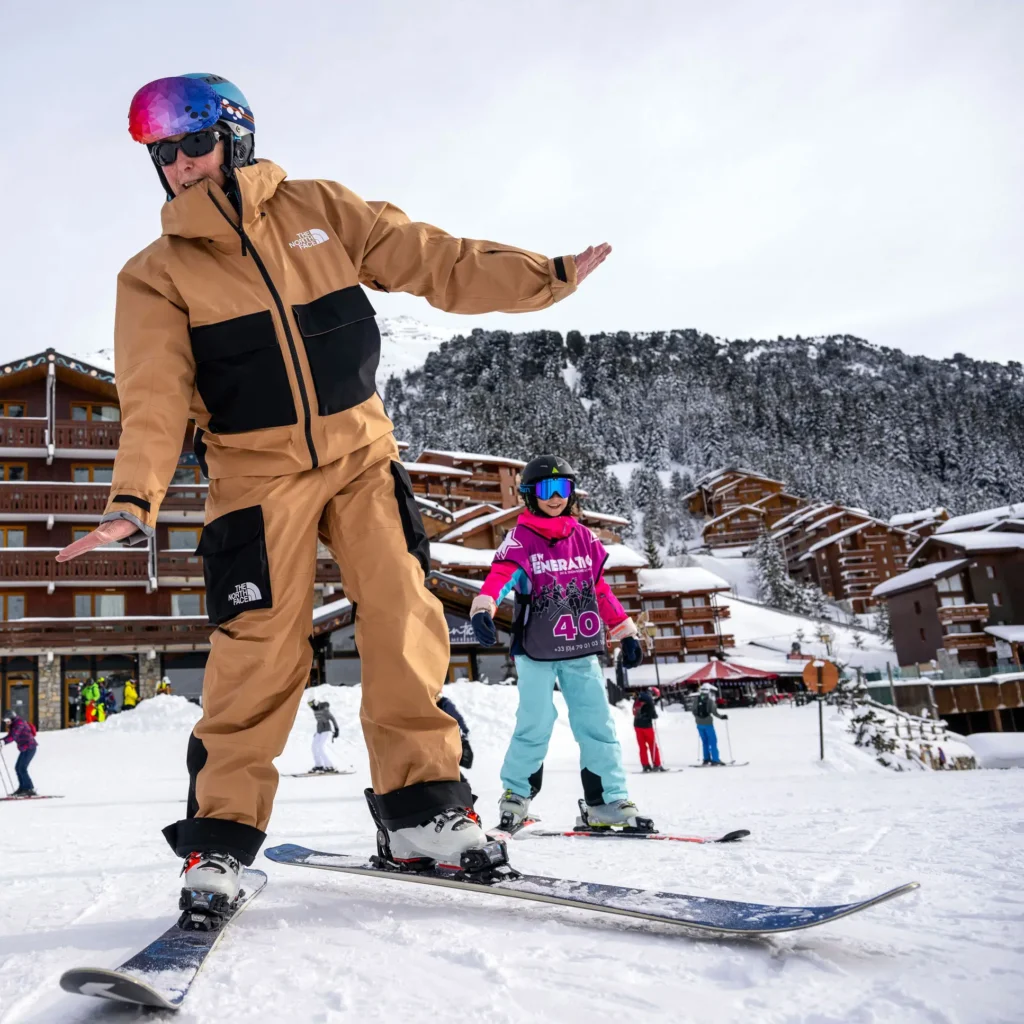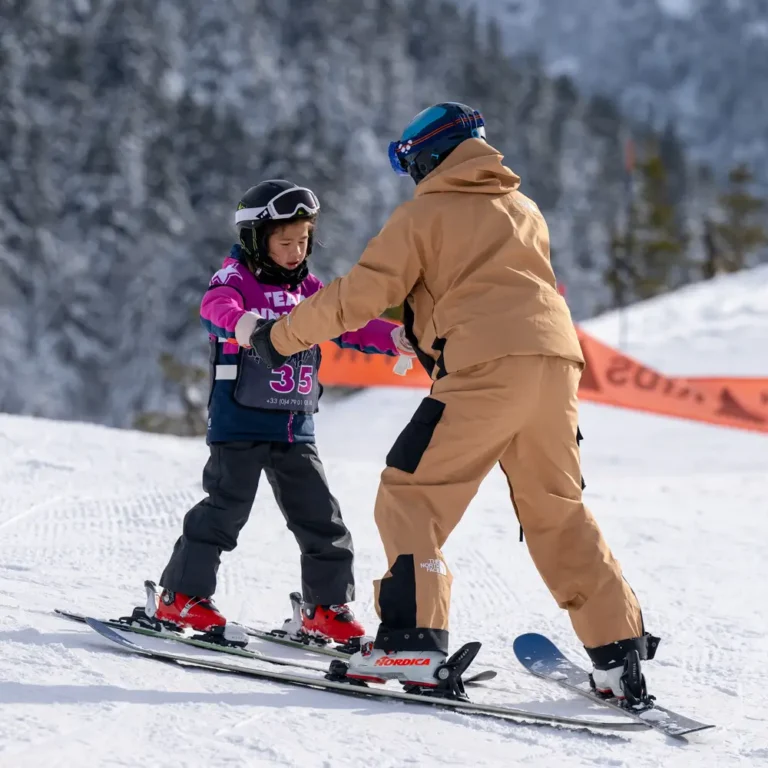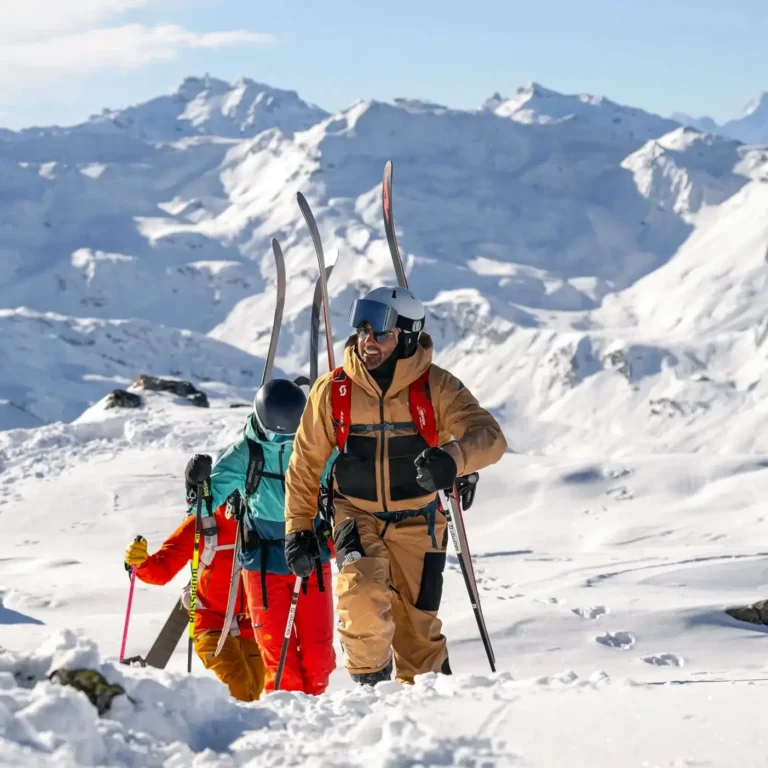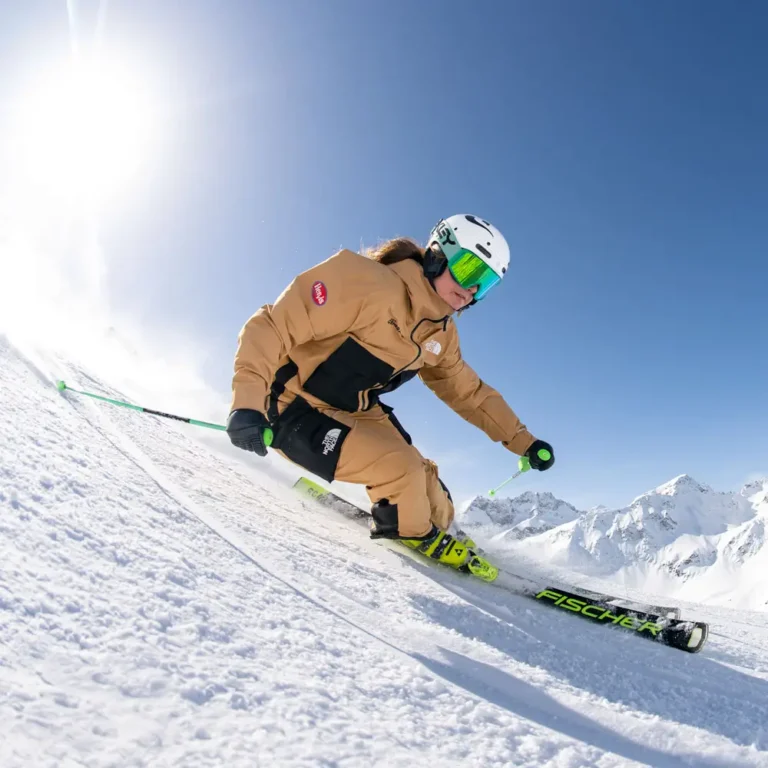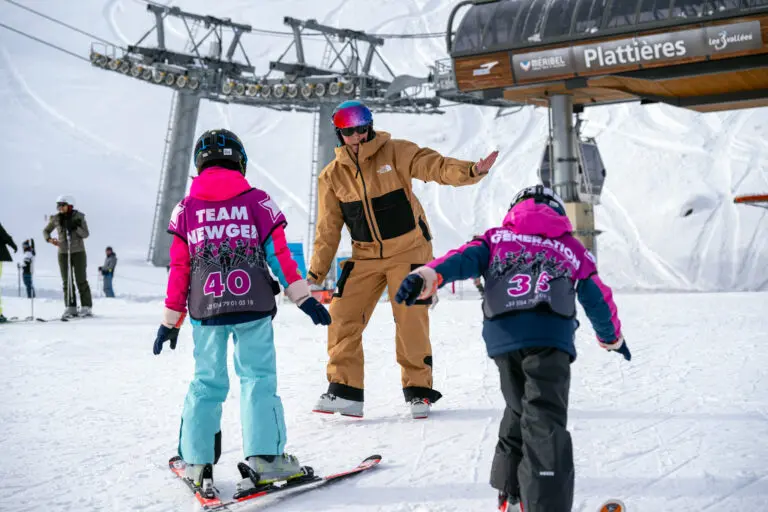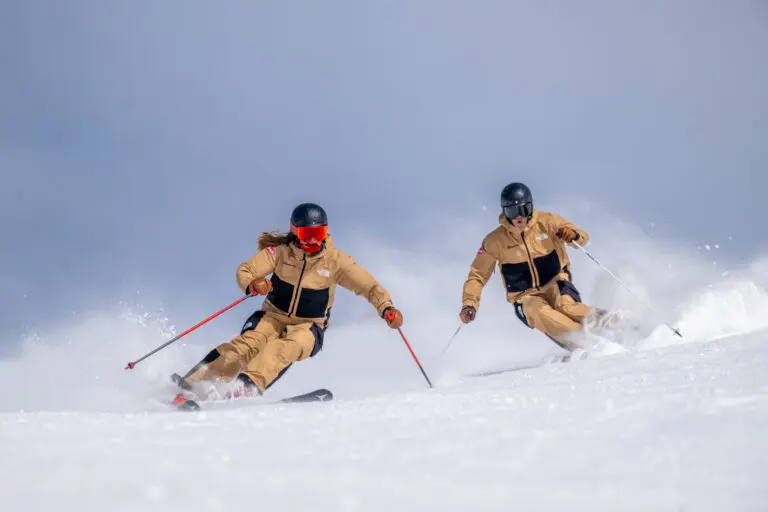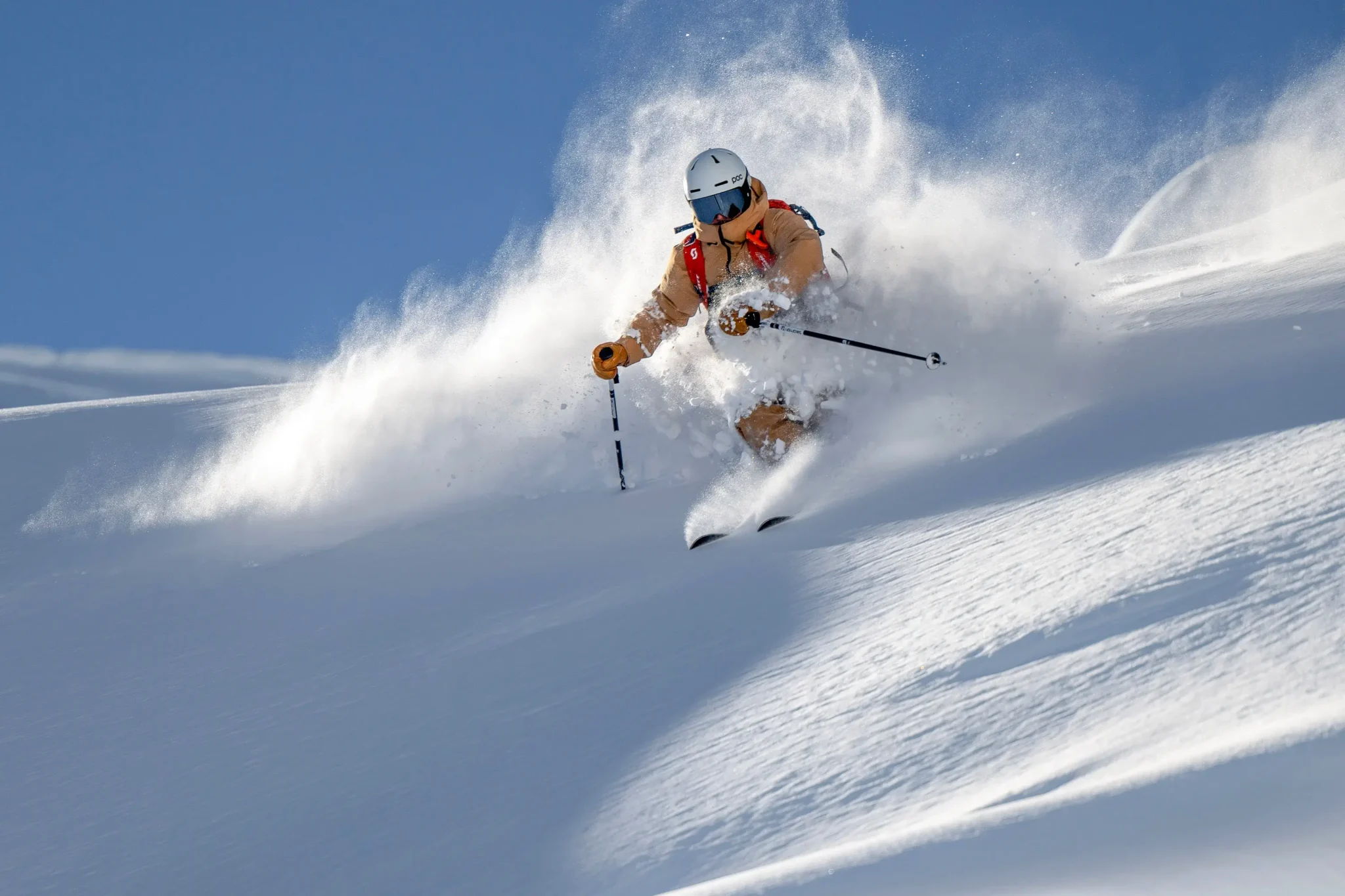Whether you’re planning a future on the slopes, an experienced ski instructor eager to level up your certifications, or a parent helping your child pursue their dream job, you’ve likely wondered—how much do ski instructors actually earn?
Ski instructor salaries depend on factors like location, experience, and certifications. However, this role offers so much more than just financial rewards.
In this guide, we’ll explore the earning potential, career development opportunities, and unique perks of being a ski instructor.
Read more on How to become a Ski Instructor.
Average Salary of a Ski Instructor
Ski instructor salaries can differ significantly depending on where you work. For a starting point, here’s an overview of average pay in Europe and North and South America.
Europe
In Europe, ski instructor salaries can vary widely depending on the country and resort.
In Austria, Italy, Germany and Switzerland BASI Level 1 or 2, the average salary typically ranges between €20 per hour. Over a full season, earnings can average around €1,200 to €2,500 per month. There are often additional perks, such as your lift pass and extra bonuses for requested lessons.
Experienced ski instructors, such as those holding advanced certifications (e.g. ISIA Level 3), can earn more—often between €25 to €40 per hour, with monthly earnings reaching up to €3,500 or more in high-demand resorts.
In France, ski instructors can earn €55 to €80 per hour. However, there are very strict rules governing which qualifications are recognised, and it takes an average of 3 years of training to pass all the required exams.
North America
Ski instructor salaries in North America are fairly similar, if not slightly higher, than in Europe. For entry-level instructors, hourly wages typically range from $10 to $20 USD per hour, depending on the resort and state. For instance, Resorts in Colorado, Utah, and California may offer competitive pay due to their popularity and expensive clientele.
As in Europe, advanced experience and certifications such as PSIA Level 3 or CSIA Level 4 can significantly increase earnings, with some instructors earning up to $50 USD per hour. During a full season, experienced instructors at prominent resorts can make upwards of $4,000 USD per month.
South America
Teaching in South America (think Argentina or Chile) is an adventurous and unique experience, but it tends to offer lower pay than in Europe and North America.
Entry-level instructors often earn $10 to $20 USD per hour, with monthly earnings ranging between $800 and $1,500 USD. However, what these locations lack in high wages, they make up for in breathtaking scenery and cultural immersion opportunities.
Asia, Australia and New Zealand
Australia’s resorts are known for their progressive pay systems, which reward long-term dedication. For Level 2 instructors, starting rates begin at $235 AUD per hour, which increases as you work more hours. With their ISIA Level 3 and above, instructors can earn up to $50 AUD an hour.
New Zealand’s resorts may be smaller, but the skiing is as epic as it gets. While starting pay for Level 1 instructors tends to hover around $15 NZD an hour, Level 2 instructors can earn between $20-$25 NZD per hour. The Kiwi ski scene may be more understated, and you’ll earn less per hour than in Australia, but it’s filled with opportunities to refine your craft, explore breathtaking landscapes, and make lasting memories.
Skiing in Japan offers an incredible blend of culture, adventure, and opportunity. Whether you’re carving through powder in Honshu or Hokkaido, ski instructors are in high demand. For Level 1 instructors, hourly pay typically starts around €20 an hour, while Level 2 instructors can expect €25 an hour. Some resorts even offer progressive payment systems similar to those in Australia.
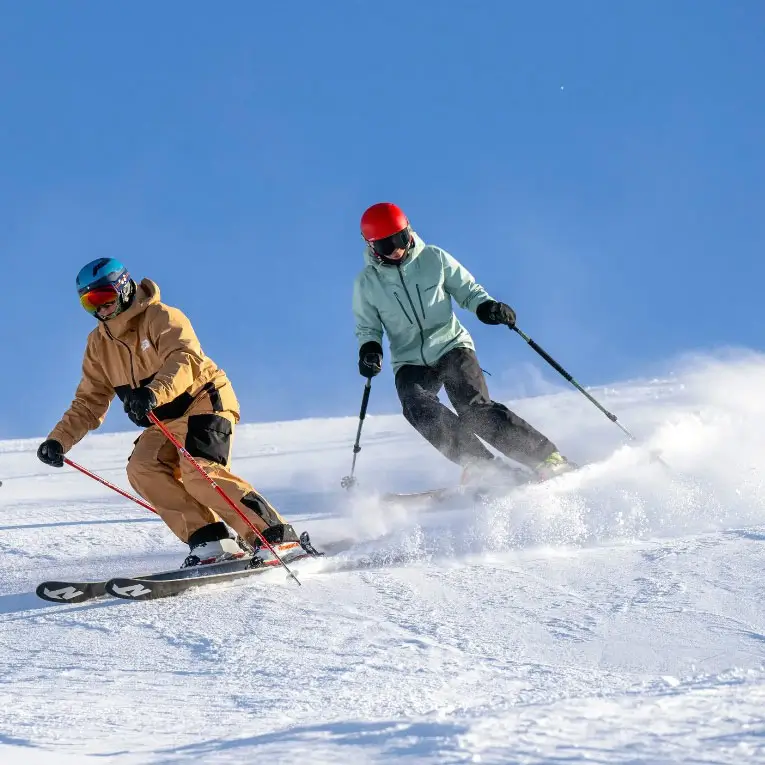
What Influences Ski Instructor Salaries?
Salaries vary based on a few key factors:
1. Experience Level
First-time instructors will earn less than those with years of teaching under their belt. To make a long-term, financially rewarding career out of snowsports, you should aim to achieve an ISIA Level 3 accredited qualification
2. Country
Alpine countries like France, Austria and Switzerland, where it is very hard to achieve the top level of qualifications, offer the best opportunities for high pay and sustainable long-term careers in the industry. This is largely due to a mismatch of supply and demand that isn’t present elsewhere in the world.
3. Resort
Working in prestigious resorts like Verbier, Lech, Courchevel, or Aspen often comes with higher salaries. However, the cost of living in these resorts can also be steep, so be sure to factor this into your decision.
4. Peak Season vs. Low Season
Holiday periods, such as Christmas, New Year, or February half-term, often come with greater demand and sometimes higher pay rates. Many resorts offer bonuses during these peak times.
Career Progression and Advanced Certifications
A career in ski instruction offers exciting growth opportunities through advanced training and qualifications, which can significantly increase both earning potential and job satisfaction.
- Certifications: Advancing your qualifications with courses like BASI Level 3 or other ISIA-accredited qualifications can open doors to higher-paying roles, such as supervising other instructors or teaching high-performing guests. Progressing beyond this to the BASI Level 4, Italian Maestro de Sci, Austrian Stattliche or French Diplome gives you the freedom to work anywhere in the world, teach all levels of skiers, and work as an independent ski instructor or start your own ski school.
- Specialisations: Diversify your skills by specialising in teaching children, adaptive skiing, or off-piste techniques. These skills are in high demand and typically offer higher earnings.
- Resort Mobility: Working at prestigious resorts and ski schools across different countries helps you build a strong network and access premium jobs.
- Year-Round Opportunities: You can work year-round, teaching in places like New Zealand during Europe’s off-season, by alternating between the Northern and Southern Hemisphere seasons.
Perks That Go Beyond the Paycheck
While salaries can vary, many ski instructors enjoy benefits that make the lifestyle even more appealing.
- Lift Passes: Most ski schools provide their instructors with season passes, giving you access to the slopes even when you’re off-duty.
- Discounted Gear: Ski instructors often receive discounts on equipment, clothing, and accessories through partnerships with brands.
- Free or Subsidised Accommodation: Many resorts offer free or heavily discounted housing, which can significantly lower your living expenses during the season.
- Health Insurance: At higher-end resorts or in certain countries (like France), health insurance and other perks are included as part of employment.
- Camaraderie and Community: Perhaps one of the best perks is the strong sense of belonging among the ski instructor community—sharing incredible experiences, tackling fresh powder, and knowing you’re part of an international network of snow lovers.
Is Ski Instruction Right for You?
If you’re passionate about skiing, love working with people, and thrive in breathtaking mountain environments, ski instruction can be a deeply rewarding career. Salaries depend on a variety of factors, but the opportunities to grow, teach at incredible destinations, and immerse yourself in the ski culture are hard to match. And with certifications like BASI Level 1 and Level 2, getting started is easier than you might think.
Whether your goal is to build a long-term career or spend a few seasons indulging your love of the mountains, there’s no better time to take the leap.
Are you considering a career as a ski instructor? Kickstart your adventure by enrolling in a ski instructor course today to gain globally recognised credentials and unlock unforgettable experiences.
FAQs
How much do ski instructors make annually?
Full-time year-round ski instructors can earn between €20,000 and €50,000 annually, depending on their level of experience and whether they work both hemispheres.
Are ski instructor jobs seasonal?
Yes, most ski instructor jobs are tied to the winter season. However, you can teach year-round by working seasons in both the Northern and Southern Hemispheres.
Do I need previous experience to become a ski instructor?
While it helps to be a confident skier, most ski instructor courses, like BASI Level 1, start with the basics and help you build the required skills.
If you’re ready to take the first step, check out our detailed ski instructor course to begin your journey toward a career on the slopes!
